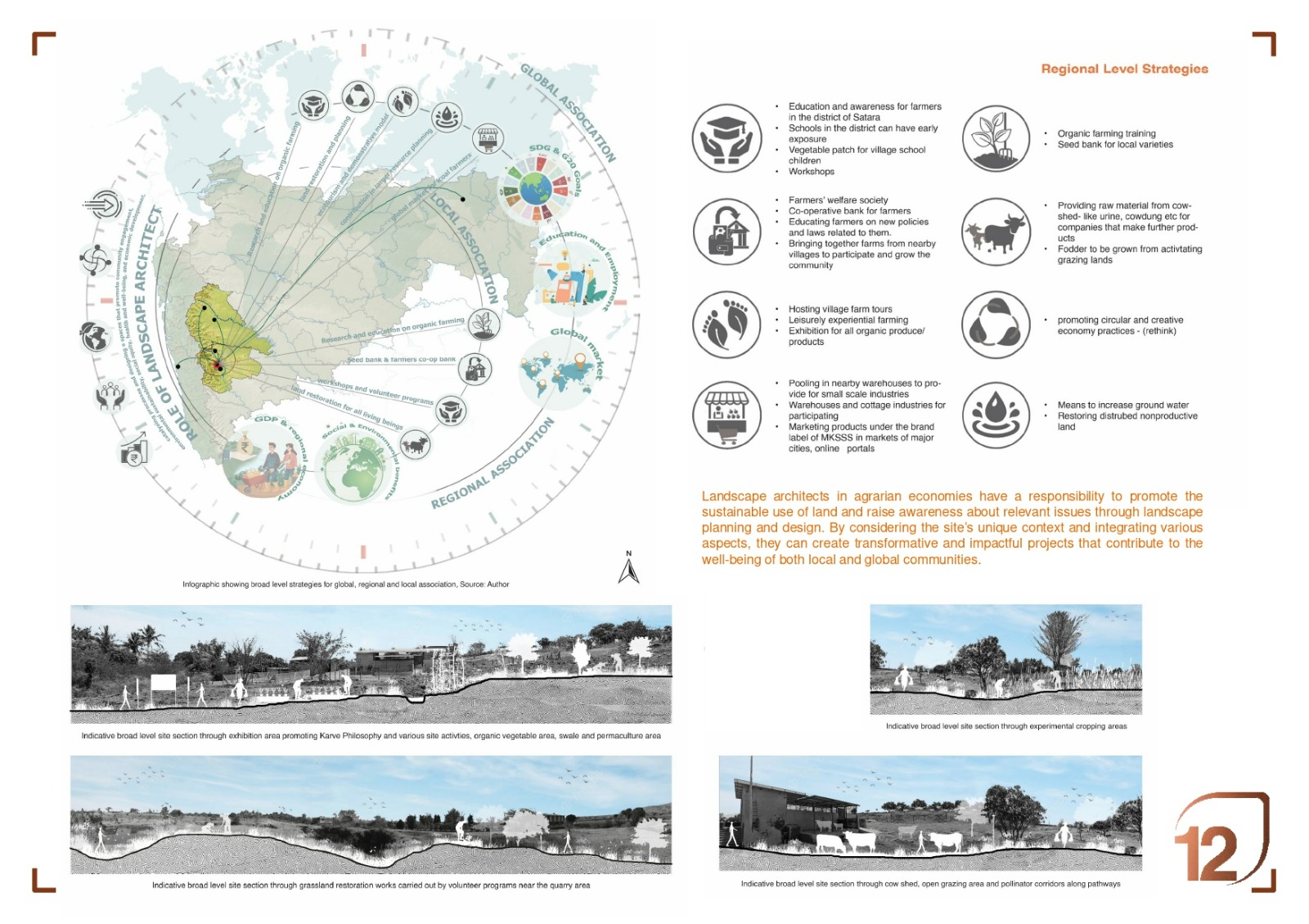
An Integrated Approach to Strengthen Livelyhoods of Rural Agrarian Communities around MKSSS' site in Dhagewadi, Satara, Maharashtra, India
Masters in Landscape Architecture
Savitribai Phule Pune University
India being an agrarian country is currently facing the ever-changing economic trends that are causing pressure on the natural resourcesof the region. This includes activities like quarrying and exploitation of water resources leaving the land disturbed and non-productive. To re-establish the relations between, community, ecology, and economy – the three pillars of sustainability, such lands can be developed to support communities through education, and skill development. Practical and vocational skills will help them upscale their financial feasibility. The development through a landscape approach has manifold impacts including a revival of non-productive land. MKSSS as an Institute is based on the three eternal values of “Bala”( strength), “ Dynana”(Wisdom) and “Seva” ( Service) set out by Maharshi Karve at the beginning of his journey (S. Sahasrabuddhe 2022). Holding onto the values, as an institute, they continue to work for the welfare and upliftment of the communities to empower them. They have proposed to develop their site in Dhagewadi, near Limb village in Sarata district, Maharshtra, India , to benefit the rural communities surrounding the location. The site having an abandoned quarry, low biomass, and poor soil, is an example of a non-productive land. Through resource planning, spatial enjoyment and a regenerative approach, the intent of this thesis is to provide an economy-based landscape model for uplifting communities in a geographical setting. The proposal aims to demonstrate design strategies and management plans to boost the relationship between the three pillars of sustainability thereby creating an interactive landscape system.
